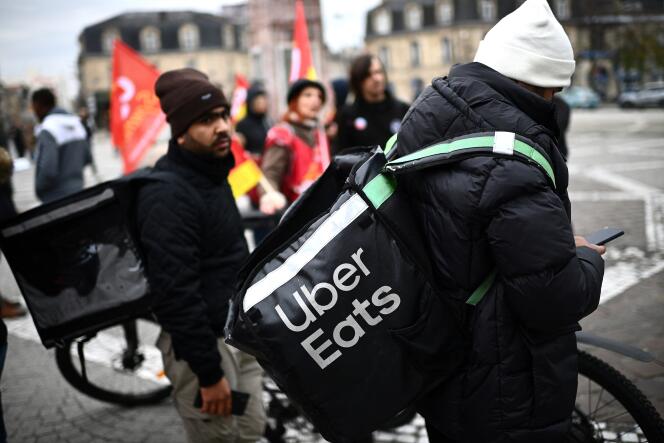


As the European elections scheduled for June 9, draw nearer, the various political camps are beginning to hone their arguments. On Sunday, January 14, Raphaël Glucksmann, an MEP (S&D, Place Publique) who would like to lead France's Parti Socialiste campaign, began a media offensive.
In an interview with Le Monde, he accused the Elysée of having "blocked the Platform Work Directive, which would give rights to millions of workers exploited by Uber and others." He asserted the same day on France Inter radio that "Emmanuel Macron proclaims to be pro-European until powerful private interests are offended."
In other words, he suggested that under pressure from Uber and Deliveroo, the Elysée Palace is preventing social advances for workers in this sector of the digital economy. Progress would be made possible by the European legislation, which was presented by the European Commission in December 2021, and has since been the subject of negotiations between the European Parliament and the 27 European Union (EU) member states.
On December 22, 2023, at a meeting of member states' ambassadors to the EU, Paris voiced opposition to the compromise reached nine days earlier by the elected representatives in Strasbourg and the EU Council presidency – then held by Spain – which was supposed to represent the interests of member states.
Around a dozen other countries supported the French line, including Poland and Hungary – who are anxious to preserve the comparative advantage that their less stringent social legislation affords them – as well as Greece, the Baltic states – notably Estonia, which wants to protect its own champion, Bolt – and the Scandinavians, who are attached to their collective bargaining model.
Faced with the explosion of these platforms, whether in the meal delivery or mobility sectors, many Europeans had wished to both harmonize and improve working conditions in a poorly regulated sector that today employs 28 million people – by 2025, there are expected to be 43 million – and which, in 90% of cases, has them working on a self-employed status.
With this in mind, in 2021 the Commission proposed that these self-employed workers, who keep the platforms afloat, should be granted employee status, provided the relationship between them and their employer places them in a position of subordination. It set out a list of criteria for defining the conditions under which a platform "is presumed to be an employer and its workers are presumed to be employees."
You have 65% of this article left to read. The rest is for subscribers only.
